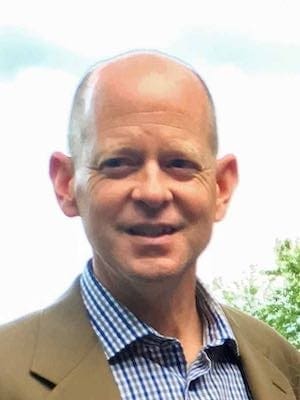My brother and I learned to juggle with billiard balls while watching television in our parents’ basement. The three smooth, heavy balls were easy to juggle because they were identical in size and weight. We soon realized that juggling a banana, a bottle of aspirin and a softball presented more challenges, because each object was so different.
Recently my juggling technique has been challenged in a different way–I’ve been juggling questions about how we respond as Christians to the world’s religions?
A college student asked at our Wednesday night Bible study, “What is the difference in Sunni and Shi’ite Muslims?” Later that same evening, a retired school teacher and life-long Baptist asked, “Why do we need to learn more about other religions when we are still trying to figure out our own faith?” Just a few days later, a young mother with small children asked, “What are we supposed to say when people from other religions ask us what we believe?”
The first question is one that seeks the facts. The second one emphasizes our own need for stronger faith. The third question focuses on both our identity and our witness among diversity. Responding appropriately to the variety of religious options today requires us to juggle all three of these things with precision.
It was not until the World’s Parliament of Religions in Chicago in 1893 that many in America heard first-hand accounts of the various religions around the world. Swami Vivekananda, a Hindu, made a substantial impact on the meetings with his charismatic demeanor and his probing questions. The Buddhist reformer Dharmapala from Sri Lanka knew that practically no one in America could tell the story of the life of Siddharta Gautama (Buddha) even though he was revered by millions around the world.
Today, Christians in America live in the same country but in a different world. Whether or not we know the story of Gautama and the foundations of Buddhism, practicing Buddhists live and work beside us. We are in what Diana Eck calls the most religiously diverse nation in the world (A New Religious America, 2001). An American can enter a Catholic or Buddhist monastery without ever leaving Texas.
Preaching against religious pluralism will not make it go away, and neither will ignoring it. In fact, as Baptists who believe deeply in religious liberty and advocate its freedoms, we are partly responsible for creating a nation in which religious diversity is a sign of healthy cultural values and not an indication of its teetering on the edge of moral oblivion.
What is a Christian to do in such a climate of religious pluralism? In short, answer the three questions.
Baptists need to be informed about the basic facts surrounding the various world religions. We do not need to be experts in every discipline, but a simple awareness of the history and doctrines of Islam, for example, will help us be more discerning about the images of Muslims we see portrayed frequently in the news media.
We also need to grow in our own faith while being aware of the faith of others around the world. Yes, indeed, growing deeper in our faith is an important part of living in a religiously diverse world, and attention to our own faith development cannot be neglected.
But I can no longer deny the fact that for millions and millions of people, other religious systems bring them joy and meaning and sustenance through life in much the same way that following Christ does for me. “Spiritual darkness” and “faithless masses” may have been terms I heard in missionary stories growing up, but no longer do they adequately describe my view of the world. The spirituality and faith of Hindus and Buddhists and Jains and Sikhs are very different from my own, but I cannot call them faithless.
Having said that, however, we come to the most crucial question–one that centers around our appropriate response to other faith traditions. The best witness we can give is to know why we believe and practice our faith in Jesus Christ.
While living in Louisville, Ky., and attending a lecture on religious pluralism, I had occasion to meet with the head of the Islamic Center. He wanted to discuss many things about Christianity and Islam, but mostly he wanted to understand the Christian concept of the Holy Spirit. He was neither trying to convince me that his way was right nor that my understanding of God was wrong. Instead, he was inviting me to give witness to what I believed about the Holy Spirit, and how the Holy Spirit and monotheism could be compatible. And I offered him the same courtesy.
When given the opportunity to discuss faith with someone of a different religion, we will not convince them to give up their beliefs by badgering them. Learning the facts about the world’s religions will not help us prove another religion to be wrong, except perhaps to ourselves. But being a positive witness about our own belief in Jesus in light of all the other faith options open to us just may be the kind of encounter that changes lives–both our lives and theirs.
Jeffrey D. Vickery is co-pastor of Cullowhee Baptist Church in Cullowhee, N.C.
Jeffrey D. Vickery is co-pastor of Cullowhee Baptist Church in Cullowhee, North Carolina, and a part-time instructor in the Philosophy and Religion Department at Western Carolina University in Cullowhee.

